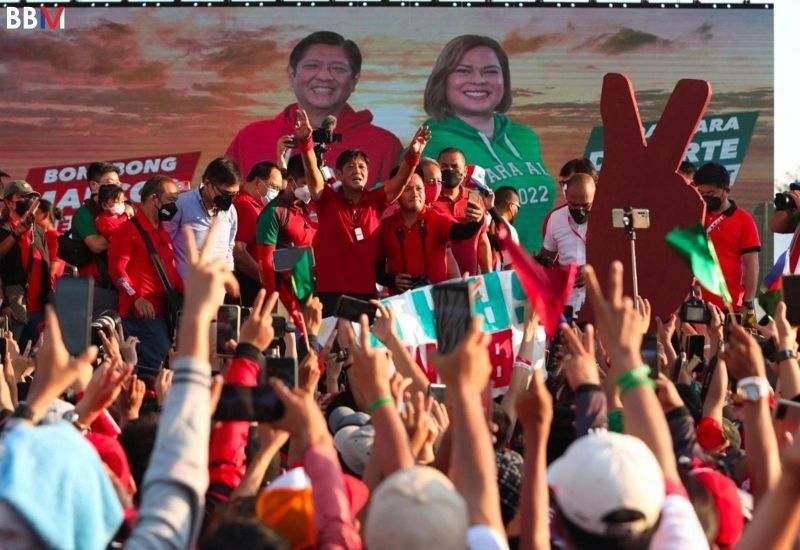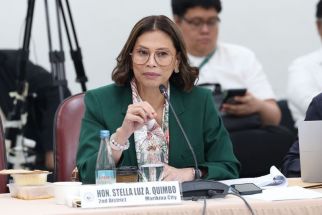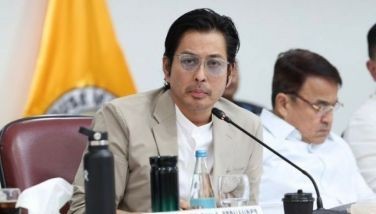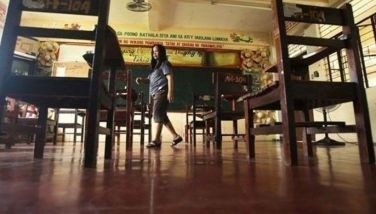Marcos admin urged to pair media literacy project with concrete solutions to fight political disinformation

MANILA, Philippines — The government’s highly publicized media literacy campaign should be paired with concrete safeguards to prevent politicians from capitalizing on the spread of disinformation, several groups of media literacy advocates and researchers said.
In a joint statement, nine non-government organizations advocating for media and information literacy, along with several disinformation researchers, pointed out that politicians and platforms continue to reap financial and political gains from mis- and disinformation.
The groups called on the Marcos administration to go beyond its media literacy project with social media platforms and pursue “deeper structural solutions, such as promoting transparency and accountability in campaign finance and political advertising.”
“Likewise, independent audits of social media companies must be supported,” the statement read.
The joint statement also pointed out that the government should build on earlier efforts to study and counter the spread of false information online by academics, members of civil society and media practitioners.
“Without concrete support for and engagement with leading researchers and organizations in disinformation research, PCO’s MIL campaign can appear like a mere public relations stunt,” the groups said.
Branding the campaign as a “multi-stakeholder” project means the government should also engage academic and civil society organizations “that have been in the forefront of promoting MIL and digital rights and countering disinformation in the country,” the joint statement read.
The Presidential Communication Office on August 14 launched its media and information literacy project in partnership with social media networks that have, in the past, been criticized for tolerating the spread of disinformation on their platforms.
The project involves the government’s education agencies — the Department of Education and the Commission on Higher Education — as well as Google, Meta (Facebook, Instagram, Messenger, Threads, and WhatsApp), TikTok, and X (formerly Twitter).
President Ferdinand "Bongbong" Marcos Jr. himself has benefited from the rampant spread of falsehoods that helped spruce up his image during his campaign for the presidency, according to a 2022 study by fact-checking coalition Tsek.ph.
Marcos in 2022 insisted that he was a victim of fake news and that there is no group of paid trolls helping spread disinformation in his favor.
RELATED: Marcos: Read Martial Law newspapers to learn more about my father's rule
Political influencers beef up campaign machineries
A study on influence operations published early this month estimates that at least P600 million to P1.5 billion were spent on political influencers in the 2022 election for presidential and vice presidential bets.
Interviews by the researchers with political influencers show that expenses for influence operations are likely left out of candidates’ officially declared campaign expenses, highlighting how new forms of disinformation escape traditional forms of auditing.
RELATED: Hidden hate and lies: How ‘covert’ political influencers ran the show of 2022 elections
The joint statement said that a previous campaign against disinformation launched under the Duterte administration ended up “transforming into a propaganda tool.”
The then-PCOO’s “Dismiss Disinformation” Facebook page had “started sharing erroneous and malicious posts, like the one accusing Rappler CEO Maria Ressa of spreading “fake news” in an interview with an Australian news channel back in May 2020.”
In 2017, a University of Oxford study found that $200,000 — around P10 million — was spent to hire trolls who would spread propaganda for President Rodrigo Duterte and target his opposition.
The study titled “Troops, trolls and troublemakers: A global inventory of organized social media manipulation” looked at how political parties and candidates across 28 countries deploy "cyber troops" who use a variety of strategies, tools and techniques to shape public opinion.
RELATED: Duterte camp spent $200,000 for troll army, Oxford study finds
Teacher training needed to support MIL subject in basic ed curriculum
The media literacy advocates also pointed out that the launch of the Marcos administration’s media literacy campaign coincides with DepEd’s unveiling of the new curriculum for Kinder to Grade 10 and its ongoing review of the senior high school curriculum.
“If the Marcos Jr. administration wants to pursue the MIL agenda earnestly, it must at the very least ensure that curriculum reforms related to MIL are duly implemented, alongside sustained support for teacher training, research, and evaluation,” the joint statement read.
“Besides teaching the public to decipher reliable sources of information, the MIL project should empower Filipinos to not shy away from difficult questions, to scrutinize main culprits and beneficiaries and address the structural aspects of disinformation,” the joint statement added. — with reports by Mikas Matsuzawa
- Latest
- Trending





























